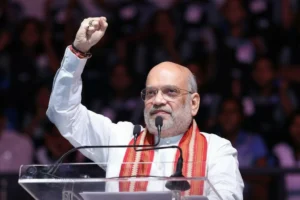
The upcoming Paris Olympics sees India adopting a fresh approach, moving away from past criticisms about the entourage accompanying its athletes. Historically, the sizable support staff that often accompanied Indian contingents drew skepticism and controversy. This time, however, the narrative is different, focusing on genuine athlete support rather than frivolous travel.
Shedding the Past Controversies
Past Olympic participations saw numerous eyebrows raised due to the high number of “hangers-on” with the Indian team. Such scenarios were frequently criticized as government-funded vacations for officials and bureaucrats, overshadowing the athletes’ hard work and need for genuine support. Given this backdrop, it’s easy to see why headlines about 117 athletes accompanied by 140 support staff could spark controversy and sensationalism.
Also read: Harbhajan Singh Dismisses Comparison Between MS Dhoni & Mohammad Rizwan
A Purposeful Support Staff
The Indian contingent for the Paris Olympics includes around 140 support staff, meticulously selected to ensure that athletes receive the best possible preparation and care. A detailed scrutiny of the list reveals that over 85% of these staff members are essential personnel such as coaches, sports scientists, medical teams, physiotherapists, and mental conditioning experts. This strategic approach aims for a near 1:1 ratio of support staff to athletes, ensuring each athlete is comfortable and well-prepared.
Real-World Examples
Consider the example of shooter Manu Bhaker, who has extensively trained with coach Jaspal Rana. Having Rana present in Paris ensures Bhaker remains in her comfort zone, which can significantly impact her performance. Similarly, in badminton, having coaches like Prakash Padukone and Vimal Kumar alongside head coach Pullela Gopichand ensures that athletes like P.V. Sindhu have the optimal support system, tailored to their recent training regimes.
Learning from Past Mistakes
The painful memory of Rio 2016, where wrestler Vinesh Phogat suffered a severe injury without immediate medical assistance, highlights the necessity of a comprehensive medical team. Such incidents underscore the importance of having a robust support system to address any emergencies promptly and professionally.
Addressing All Aspects of Preparation
Issues such as inadequate clothing have also been addressed, with JSW stepping in as clothing partners and PUMA providing footwear, ensuring athletes have high-quality gear. This attention to detail extends to the inclusion of sports scientists, whose critical role, even if introduced later in the training cycle, cannot be understated.
Moving Beyond Misconceptions
The truth is that this time, the contingent includes very few officials and bureaucrats. Close to 120 of the support staff are directly linked to the athletes’ needs, aimed at enhancing performance rather than indulging in a leisure trip. The media’s role should be to highlight these positive changes rather than sensationalizing the numbers, thereby providing fans with an accurate picture of India’s Olympic preparations.
Hope for Paris
While predictions for the Olympics are always uncertain, one thing is clear: India is entering the Paris Olympics better prepared and equipped than ever before. The meticulous planning and dedicated support staff reflect a genuine effort to bolster the athletes’ chances of success. As the final countdown begins, the nation’s hopes are high, and we wish the best for the Indian contingent in Paris. The preparation and support provided thus far certainly deserve recognition and applause.
The narrative of 140 support staff should not be seen as an excess but as a necessary investment in the athletes’ success. The Indian Olympic Association (IOA) and the Sports Authority of India (SAI) have made commendable efforts to ensure the athletes are well-supported, marking a significant shift from the past. This strategic approach aims to maximize performance and bring pride to the nation.
To read more such news, download Bharat Express news apps





















